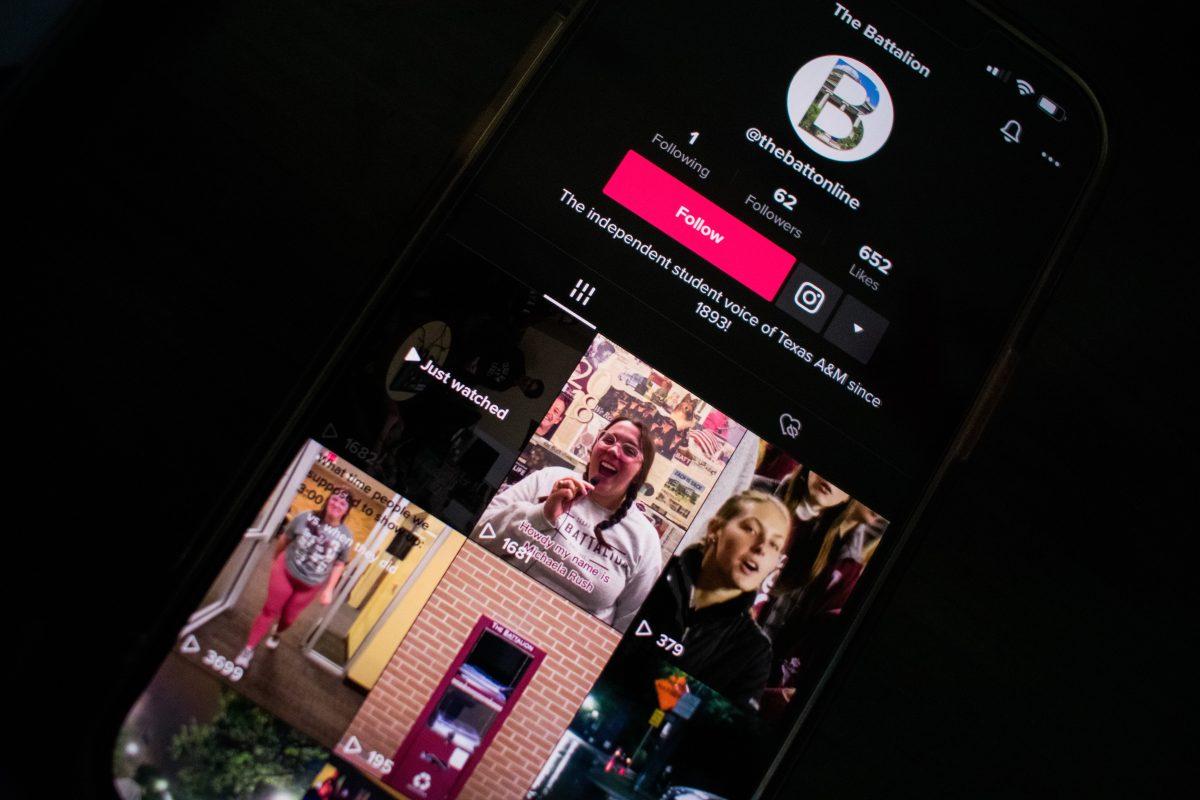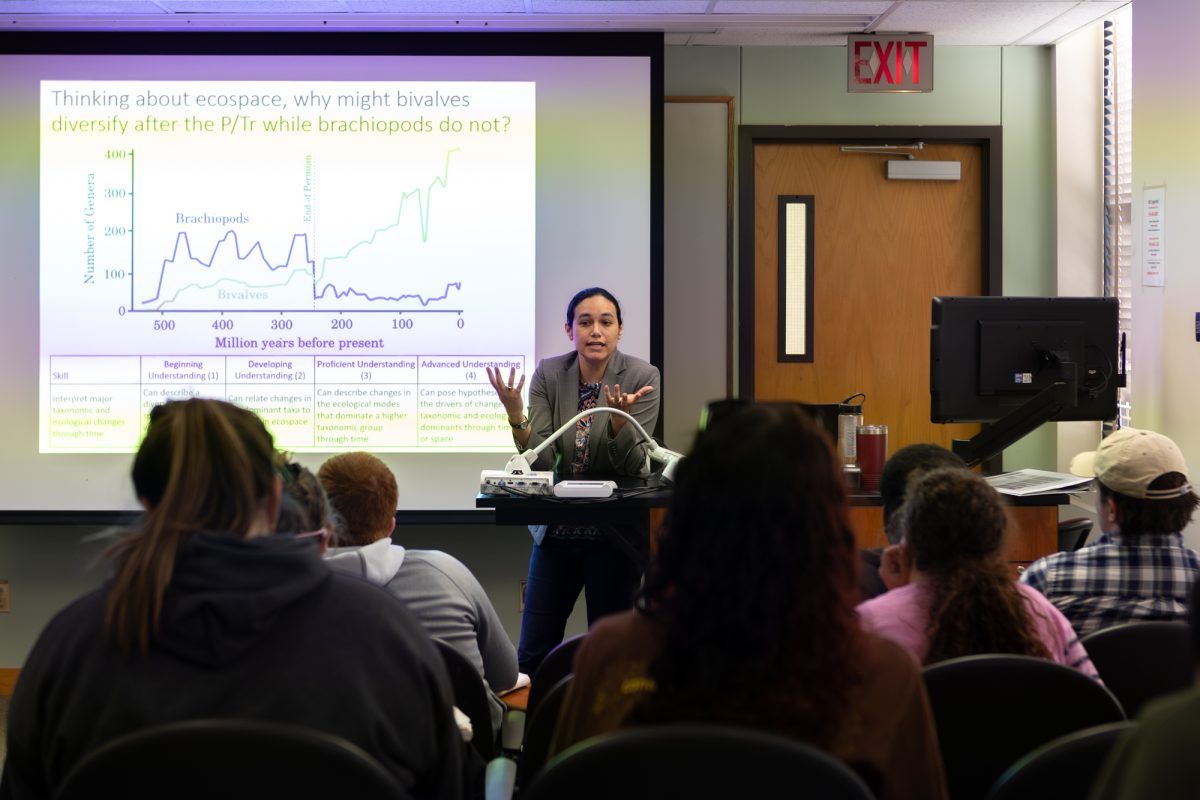Dec. 19, 2022: A day of both mourning and celebration. A shadow was cast on sorority girls and other white women who enjoy acting foolish in public for clout. The rest of us were reveling in the fact we would no longer be forced to witness ‘Renegade’ performed in Academic Plaza.
That’s right — that’s the day Texas A&M officially announced the ban on TikTok, a short-form video hosting app owned by a Beijing-based parent company, ByteDance. According to a university-wide email, the app can no longer be used on university-owned devices or accessed when connected to the university wifi network.
It was a long time coming. A couple of weeks prior to A&M’s prohibition, Gov. Greg Abbott banned the app on government-issued devices, citing cybersecurity concerns.
“TikTok harvests vast amounts of data from its users’ devices … and offers this trove of potentially sensitive information to the Chinese government,” Abbott said.
Believe it or not, this isn’t the first time TikTok faced governmental backlash. Back in 2020, former President Donald Trump also toyed with the idea of a nationwide ban on the app for the same reasons.
That sounds like an awful lot of hoopla to make over one little video-sharing app, right?
Not quite. One step into TikTok’s jargon-infused Privacy Policy will change your mind — sift through the legalese and you’ll find an odious bouquet of shifty permissions and information-grabbing practices.
We’ll start with the least severe of their cyber transgressions. Like most apps, TikTok collects some information with your permission, such as clipboard data and phone and social media contacts. These make sense; it’s what allows you to paste things into the chat feature and find your friends on the app.
Doing okay so far, huh? Well, those are just the permissions you can control. There’s also a whole other can of worms labeled “Automatically Collected Information.”
A small selection of items on this unpalatable menu includes literally all internet, search and location information. Yep, all of it.
The ironically named Privacy Policy reads; “We automatically collect certain information from you when you use the Platform, including … your IP address, geolocation-related data, unique device identifiers, browsing and search history (including content you have viewed in the Platform), and Cookies.”
Already getting an icky feeling, like Chinese spy spiders — spyders, if you will — are crawling down your spine? Buckle up buckaroo, because it’s about to get a whole lot worse.
TikTok also automatically scrapes just about everything there is to know from your device — you may want to sit down for this next quote.
“We collect certain information about the device you use to access the Platform, such as your IP address, user agent, mobile carrier … model of your device, the device system, network type, device IDs, your screen resolution and operating system, app and file names and types, keystroke patterns or rhythms, battery state, audio settings and connected audio devices … We may collect biometric identifiers and biometric information … such as faceprints and voiceprints, from your User Content.”
None of those sound like a fun day at the park, but allow me to recall your attention to one particular confection in this horrifying box of chocolates: “Keystroke patterns or rhythms.”
Yep, so in addition to knowing where you are at any given moment and everything there is to know about your phone, they also harvest every single letter you type — both while operating the app and not.
Of course, this doesn’t necessarily mean that China is spying on the U.S. using TikTok. Though, it is suspicious that TikTok’s parent company, ByteDance — the one located in China — doesn’t have the same sticky fingers in their privacy policy.
ByteDance collects some location and internet information from their local users, but nothing to the extent that TikTok does in America.
Suspicious.
As bad as all that sounds, both TikTok and ByteDance are Chinese companies. Let’s see how they measure up to some comparable American apps.
Snapchat has some similar lines in their privacy policy — they collect your IP address and some other hardware data, as well as the expected data collection when the app is in use. Instagram and Facebook do likewise.
None of these U.S.-based companies have anywhere near the data-pinching tendencies of TikTok, who’s in the lead for “Fishiest App” with its habit of stealing browsing data, keystrokes and biometrics — both when the app is in use and not.
If there is a moral to this whole cybersecurity fiasco, it’s this: read the terms and conditions before you check the box.
If you don’t, you have no idea who’s getting your information.
Charis Adkins is an English sophomore and opinion columnist for The Battalion.




























